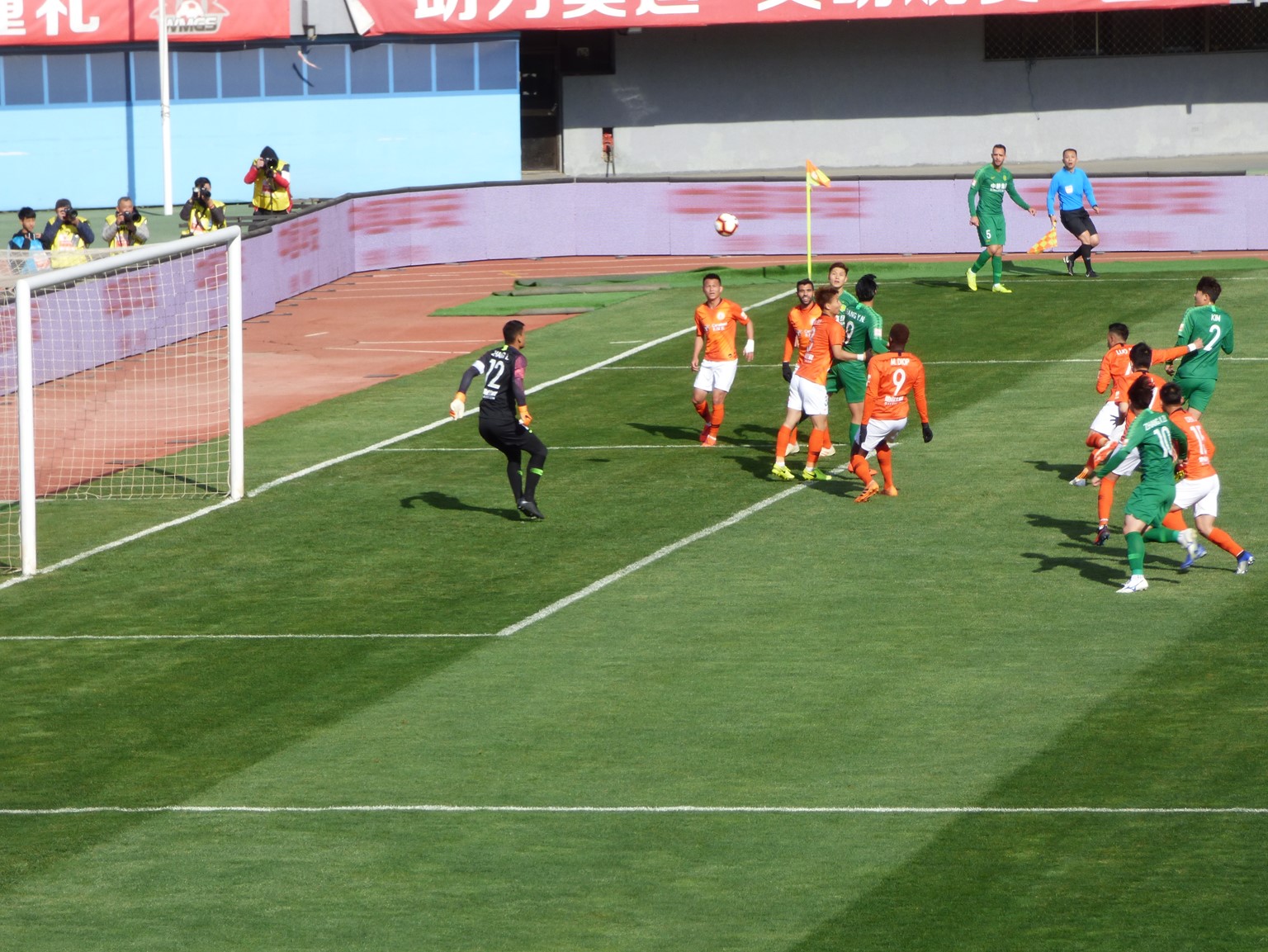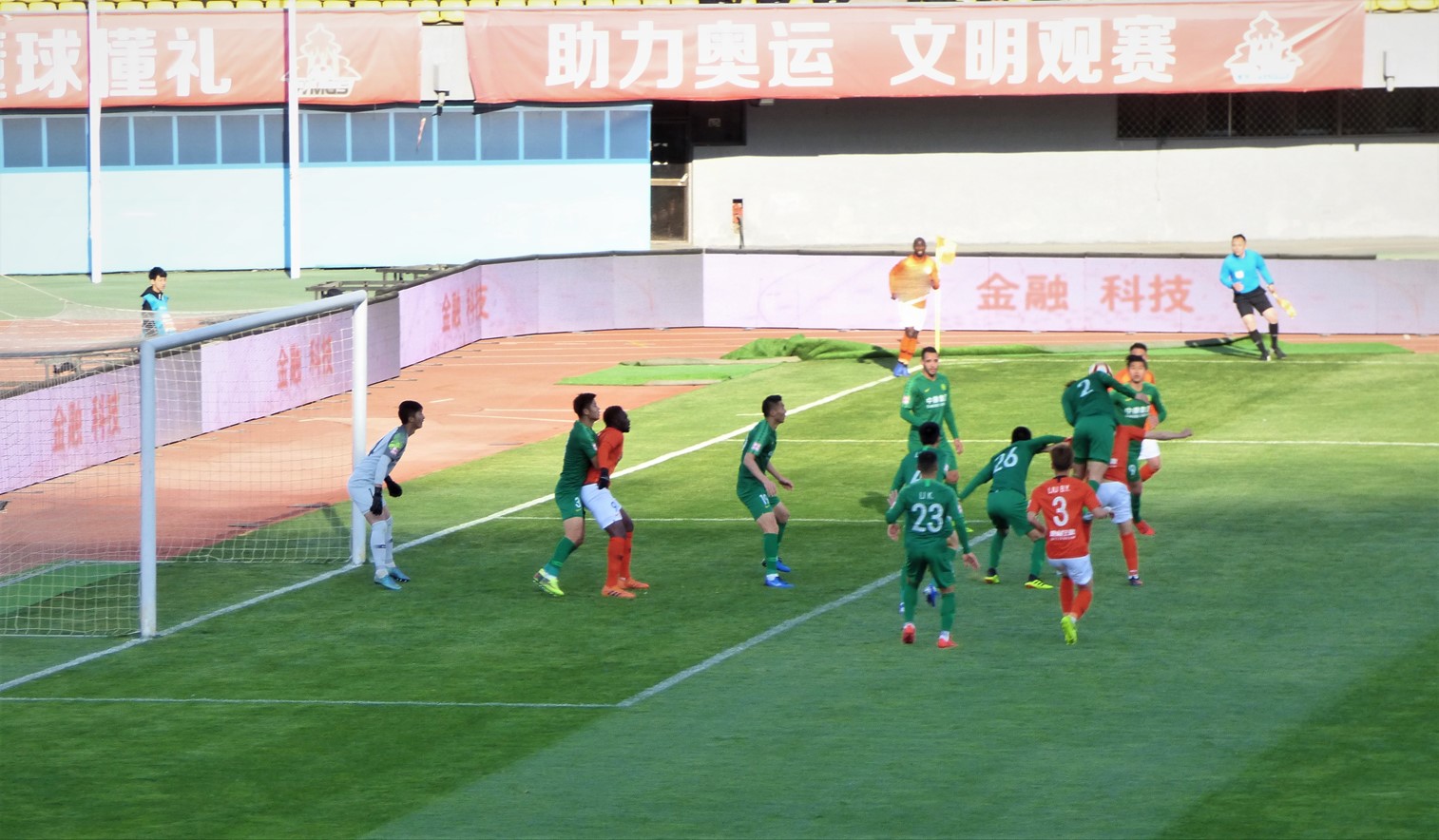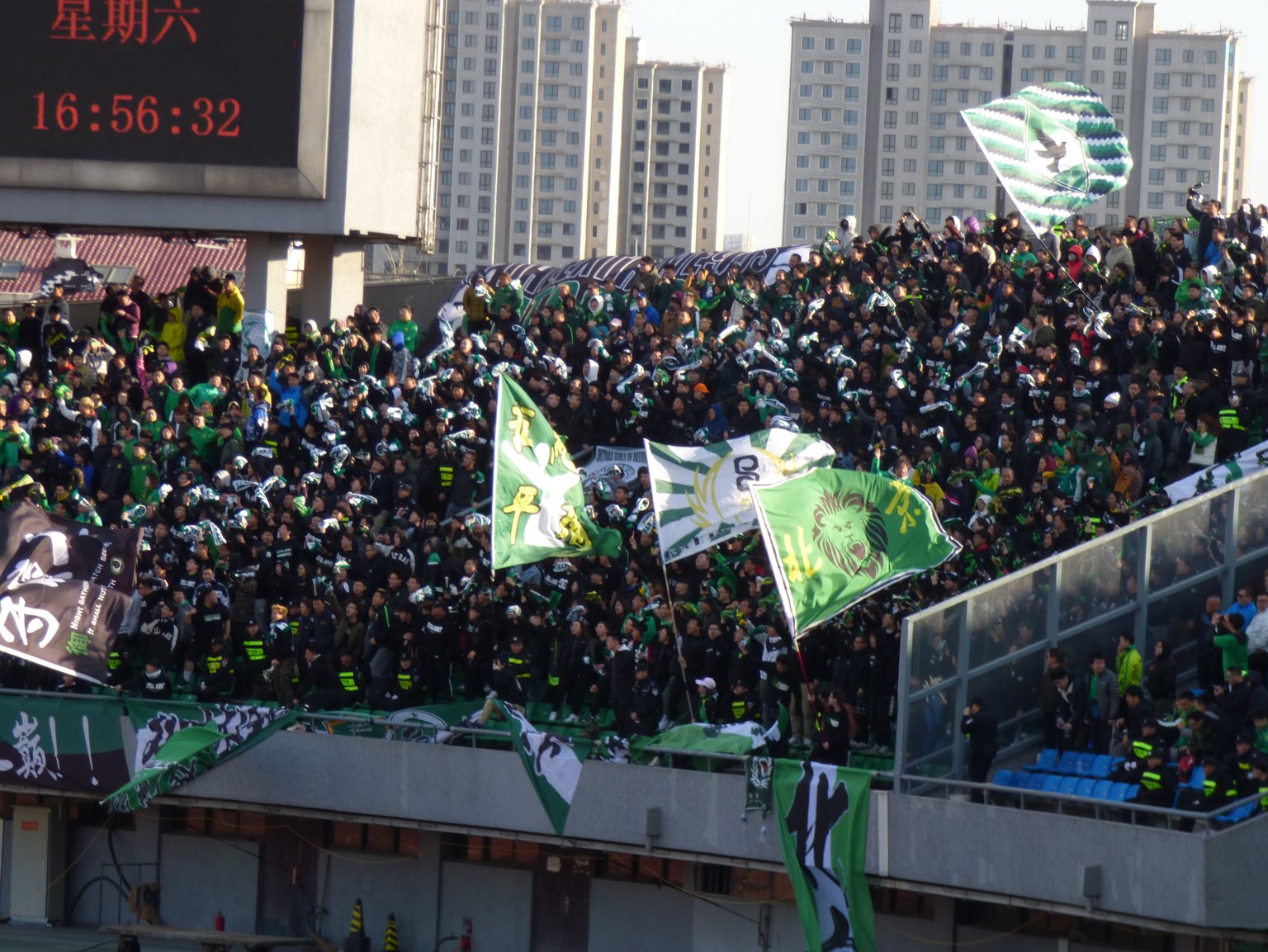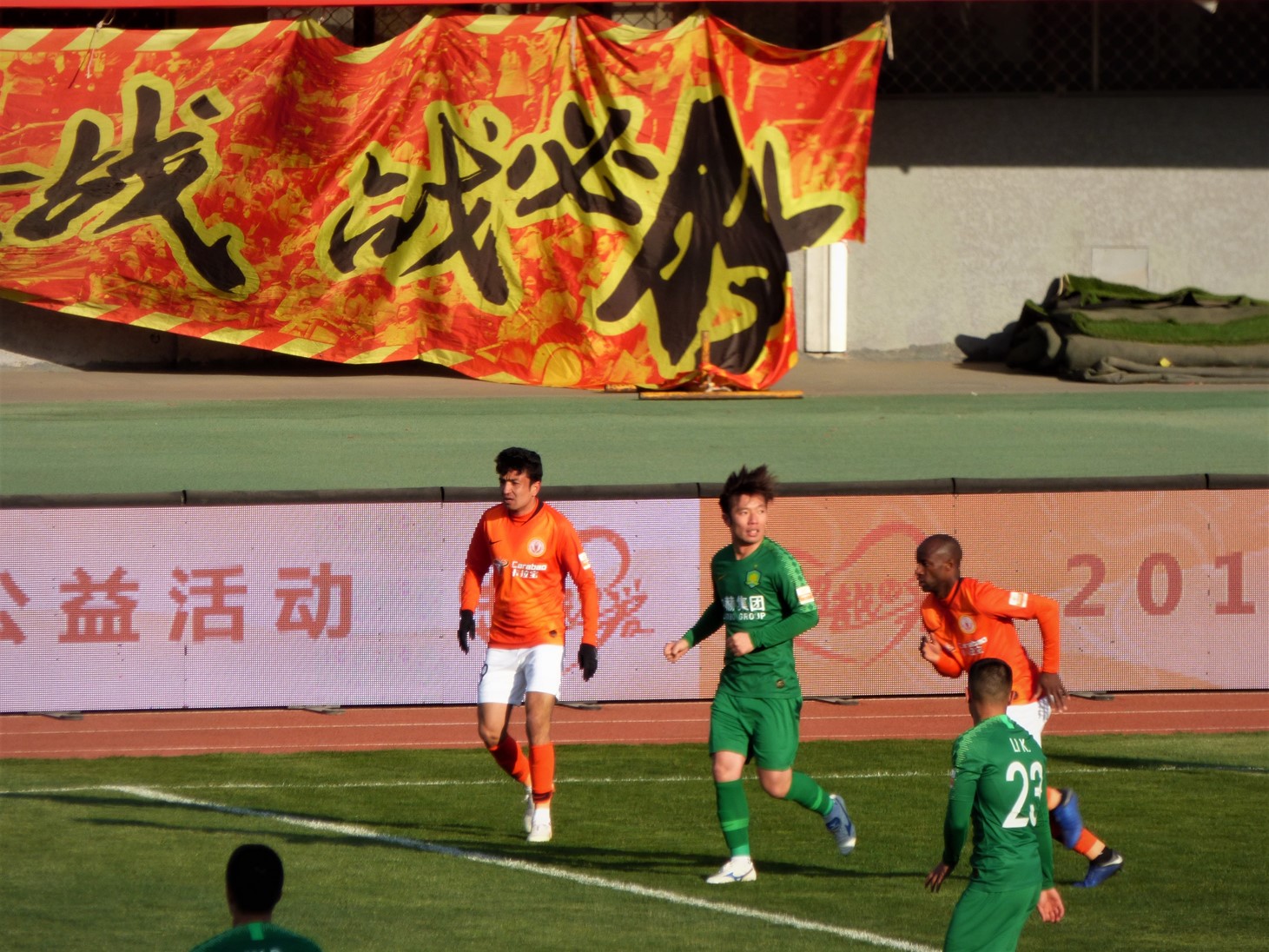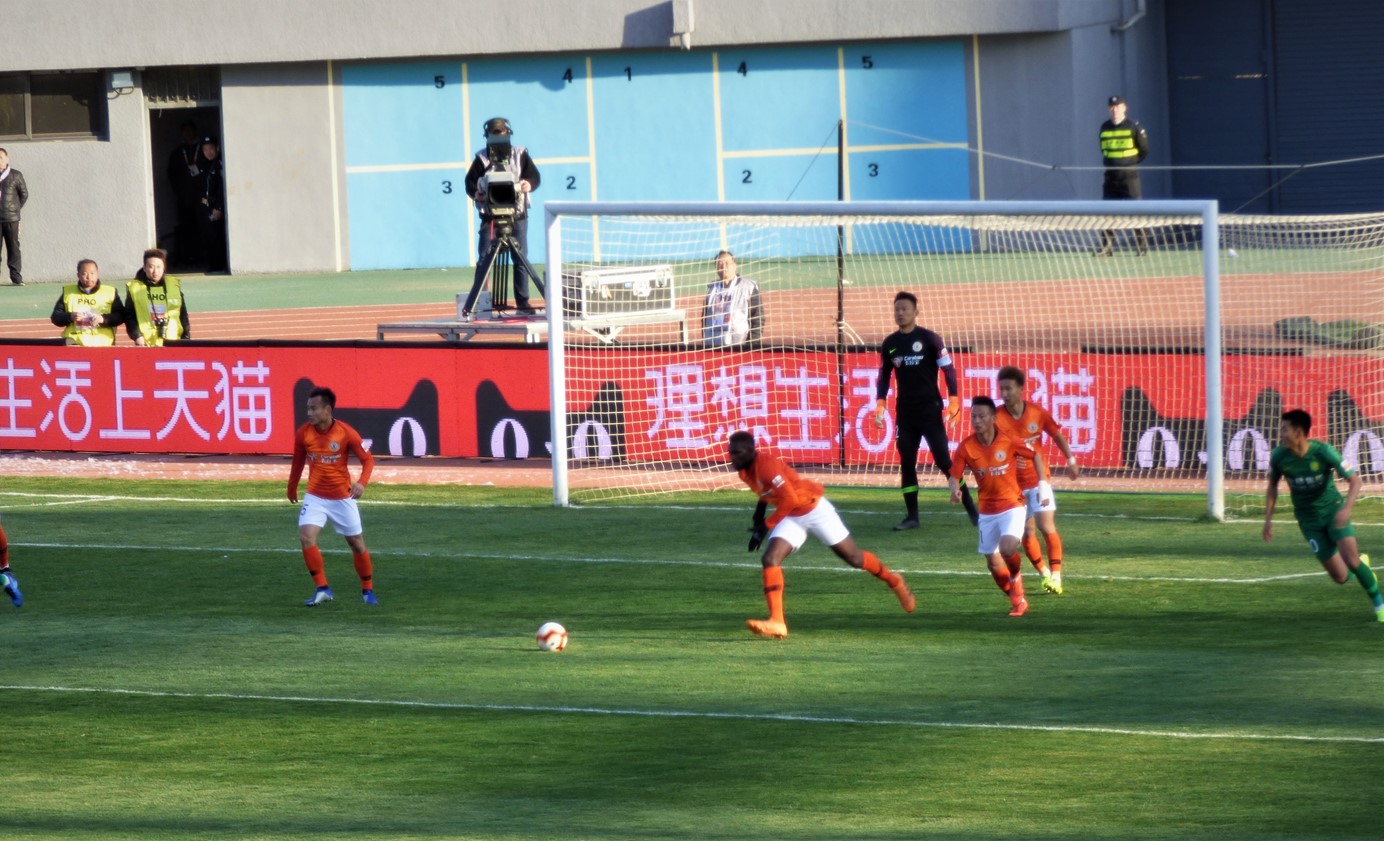Derby Days, the Beijing Way
Beijing Renhe 0-1 Beijing Guo’an
Chinese Super League @ Fengtai Stadium
Admission 150 Yuan (About £17), attendance 22376
Tickets went on sale about a week before the game. I asked my wife to help with the Chinese part of the web site, but she struggled with the site and decided to call a friend for tickets.
When four days later, he said he could not get them – because it was an away game for Guo’an, and this friend could only get us into Guo’an games for free, I again tried to get through the web site and again we ended up calling on a different friend.
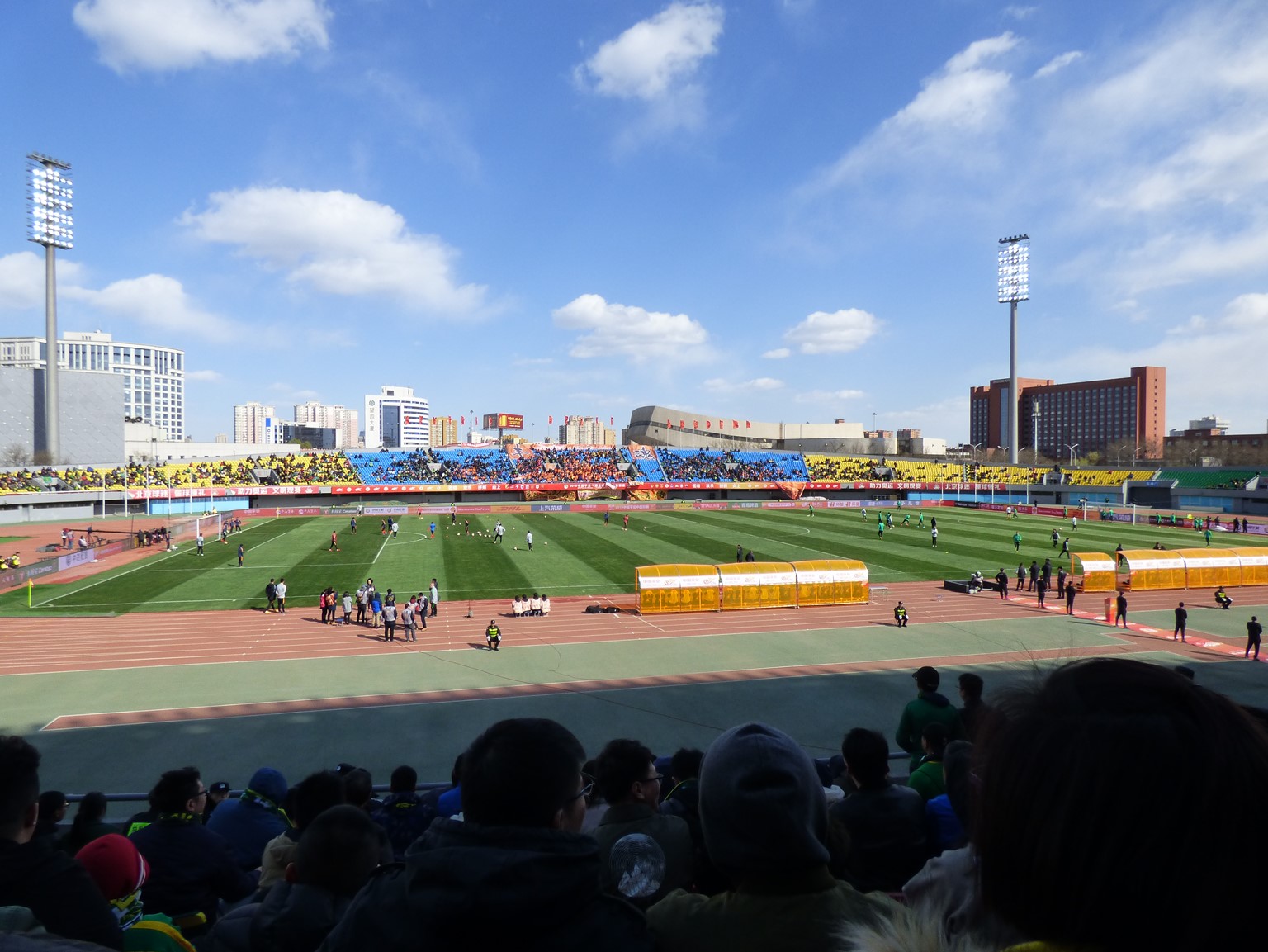
After much confusion, I eventually discovered he had managed to secure three tickets from two different sources. Both sets were free of charge, although showing 150 Yuan as face value. I said I thought the west side of the ground would be better, and our friend sold the spares outside the ground at 50 Yuan each.
As so many tickets get out from the clubs without charge, it is apparently rare in China to not be able to buy from a tout outside the ground, and equally rare if you have to go as high as face value.
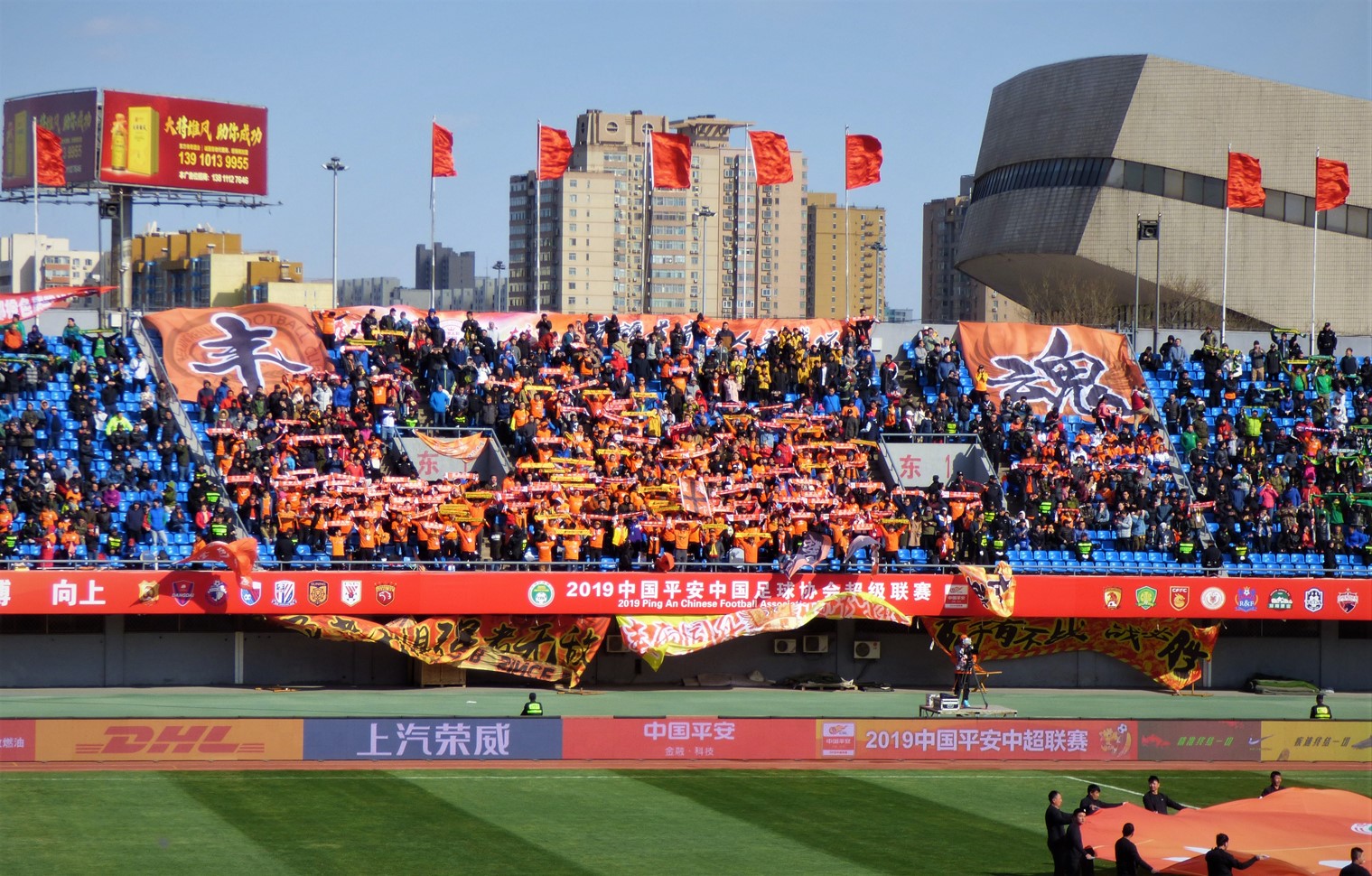
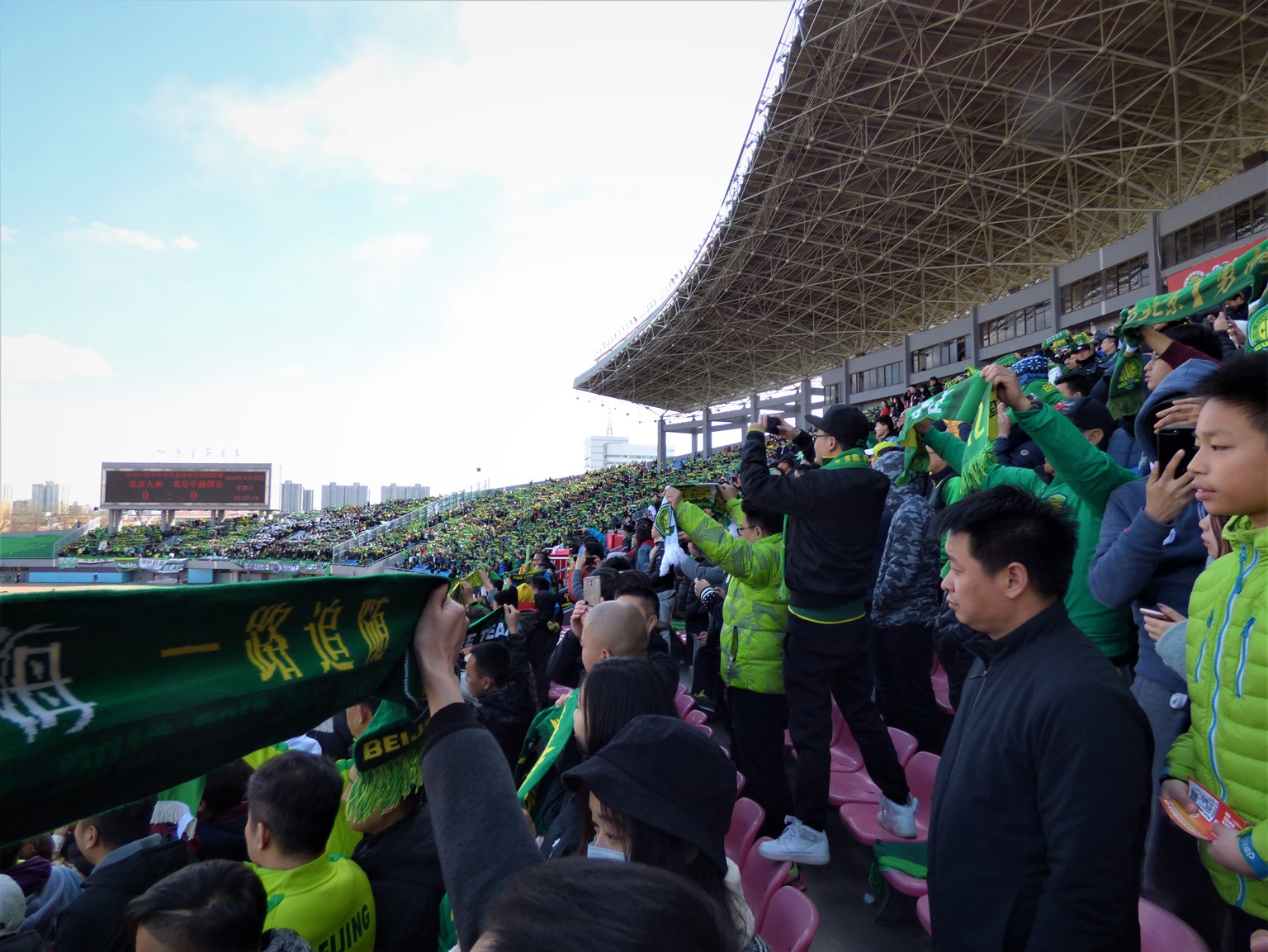
The ground is easily enough reachable from the city centre, as it is close to a metro station. It is a large bowl with running track and a single tier of seats all around. This tier is quite small behind the goals and gains height on each side. On the west side, there the number of rows is far greater than those opposite. A small amount of cover protects only the back rows of the stand and had it been a wet day, the majority in the ground would have felt it.
In fact, it was bright and sunny, but still cold and with a stiff wind blowing from the north. On the west side, we seemed relatively protected, but opposite, we would have had the sun in our faces, and yet the wind chill may still have made us colder.
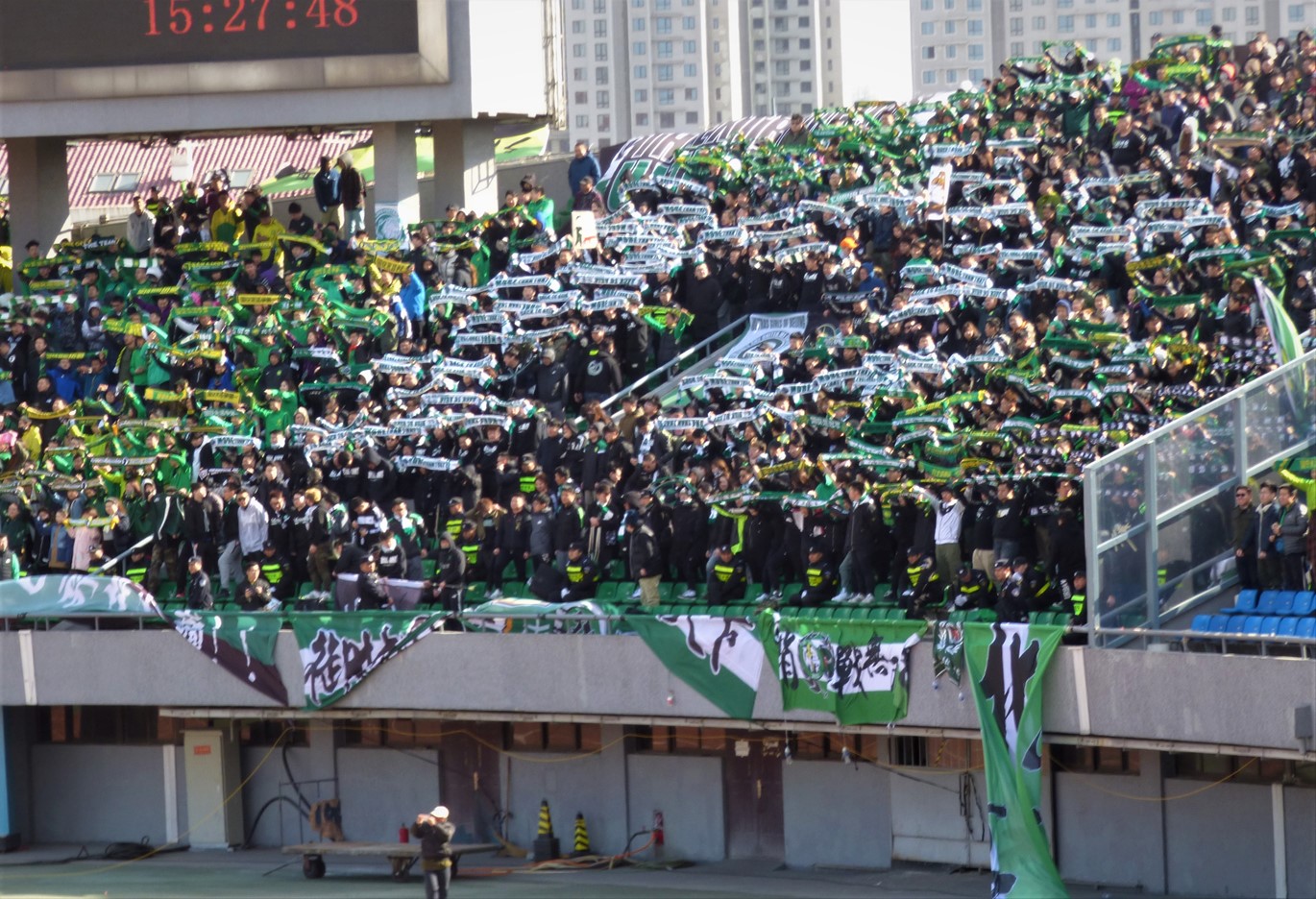
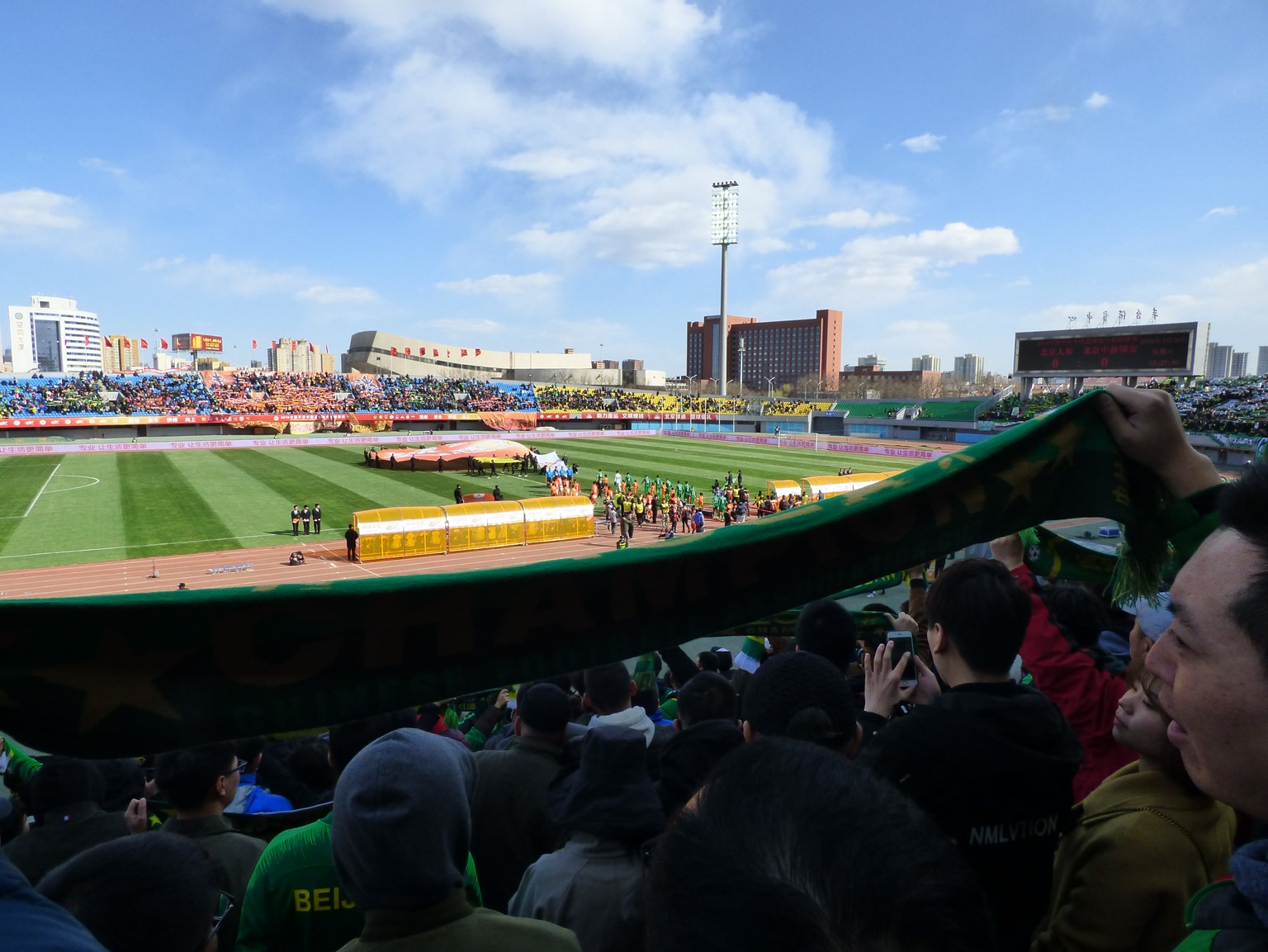
The talk this season in China is of naturalised players. A few clubs have signed players with Chinese ancestry, and who agreed to take up Chinese citizenship (and hence become eligible for the National team). Beijing Guo’an were one of the clubs taking advantage of the idea with two signings, Hou Souter from Norwegian club Stabaek, (not listed as Hou Yongyong) and Nico Yennaris from Brentford (now to be known as Li Ke Yennaris). By playing in the pre-season Super Cup, Souter was the first naturalised player to play in China. Yennaris has also had a spell with Wycombe Wanderers and played on my last visit there. Yennaris is a product of the modern world, with a Chinese mother, a Cypriot father, he was born in England and has played for England’s age group teams. Souter has played for Norwegian youth teams
Shanghai Shenhua then got in the act by naturalising Alexander N’Doumbou. N’Doumbou (now to be known as Qian Jiehei) came from the Bulgarian league with previous experience in the lower divisions in Belgium and France, but notably he has also played three internationals for Gabon. This means he cannot represent China at international level.
So, they day before the league season was to start, the Chinese FA did not make an official announcement that no naturalised players would be allowed to play in the first two rounds. This is enough to bring out complaints on (Chinese) social media from supporters, but the clubs meekly obey the rule.
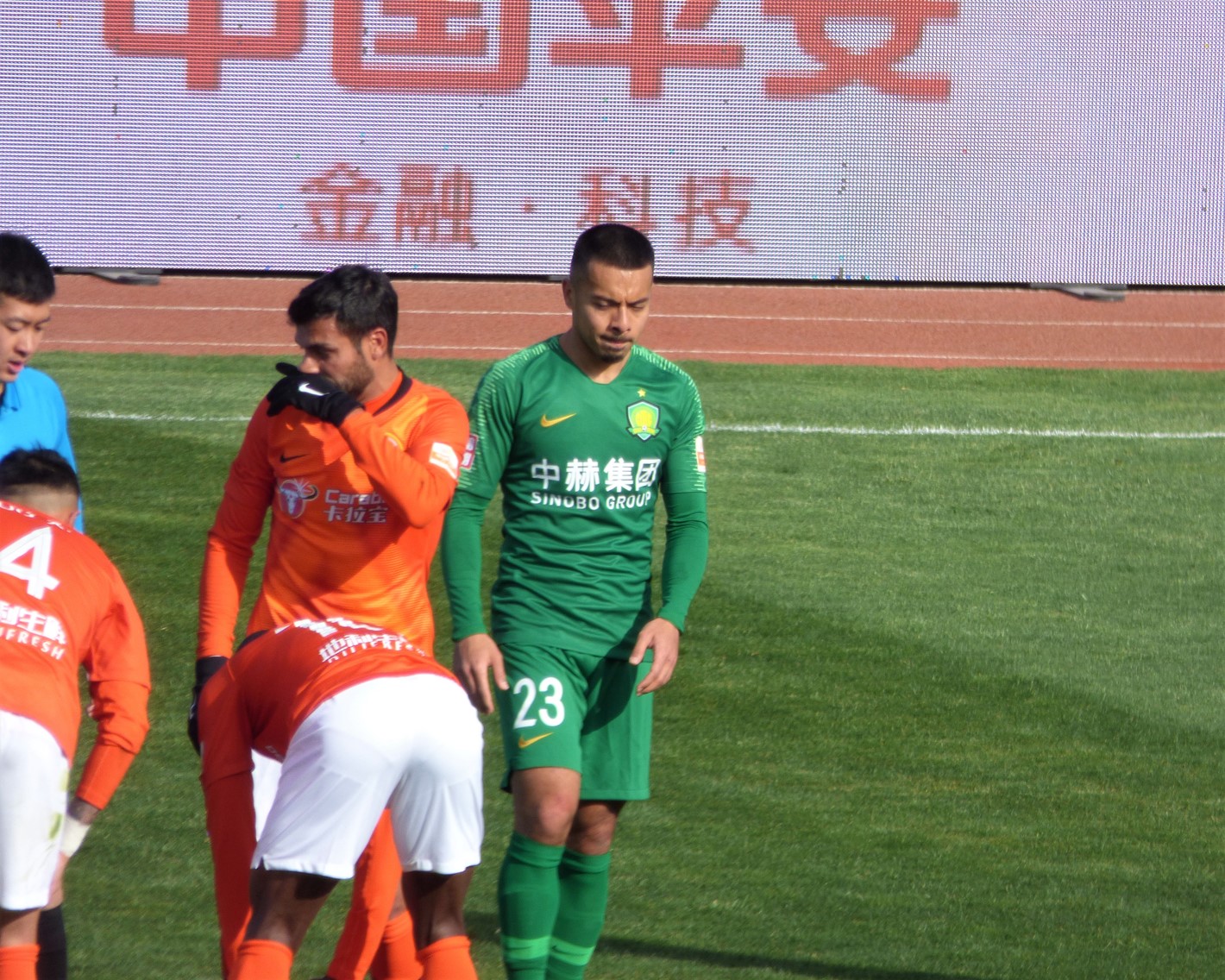
Nico Yennaris – number 23 green.
Not surprisingly, none of the naturalised players were included in the Chinese international squad, (although one assumes, they will be considered in June, to give a run out before World Cup qualification starts in the autumn).
Again, without announcement, it became clear this week that the naturalised players were now eligible. Guo’an decided not to include Souter for the derby match, but gave a debut to Yennaris.
The ground was about two thirds full, with sections left empty for no specific reason considering that many areas of the ground were mixed home and away fans. The visiting fans were easily in the majority. There is a fair amount of singing all around, with the biggest concentration of Guo’an fans (and therefore of noise) in the south west area. In such an open bowl, the noise is soon lost. I did not notice what they were singing at first, but my boy pointed out the chants included some “rude words”.
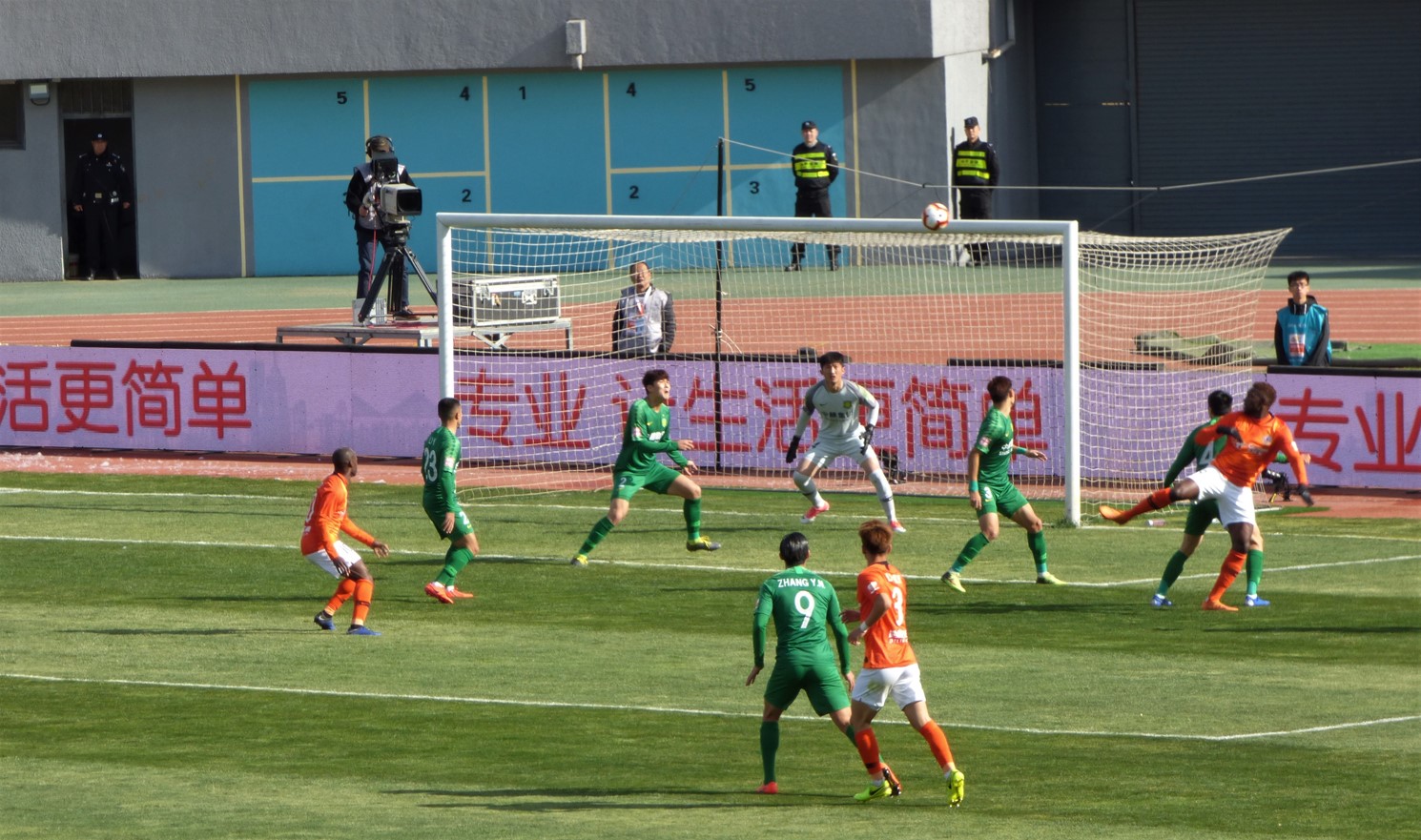
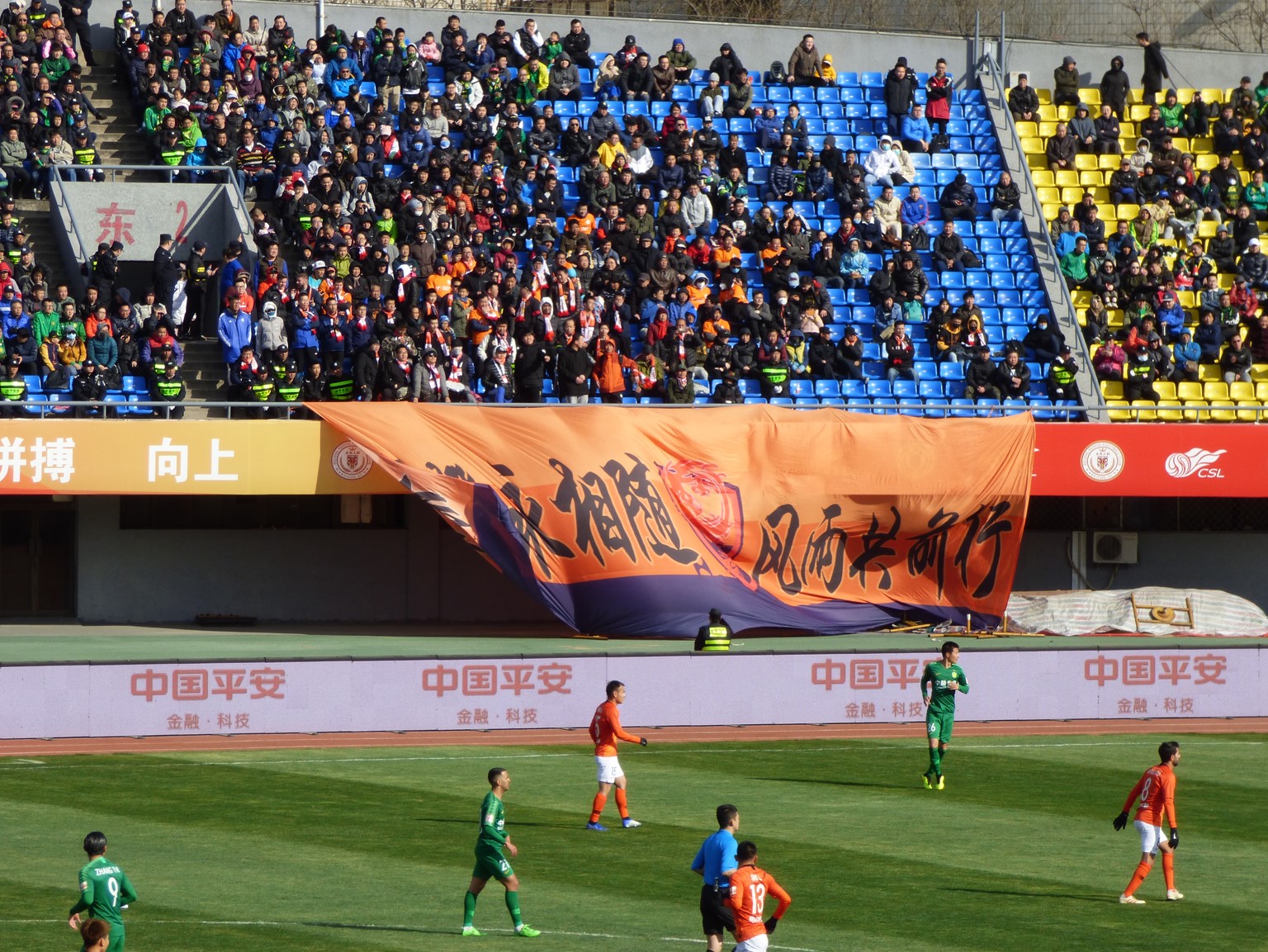
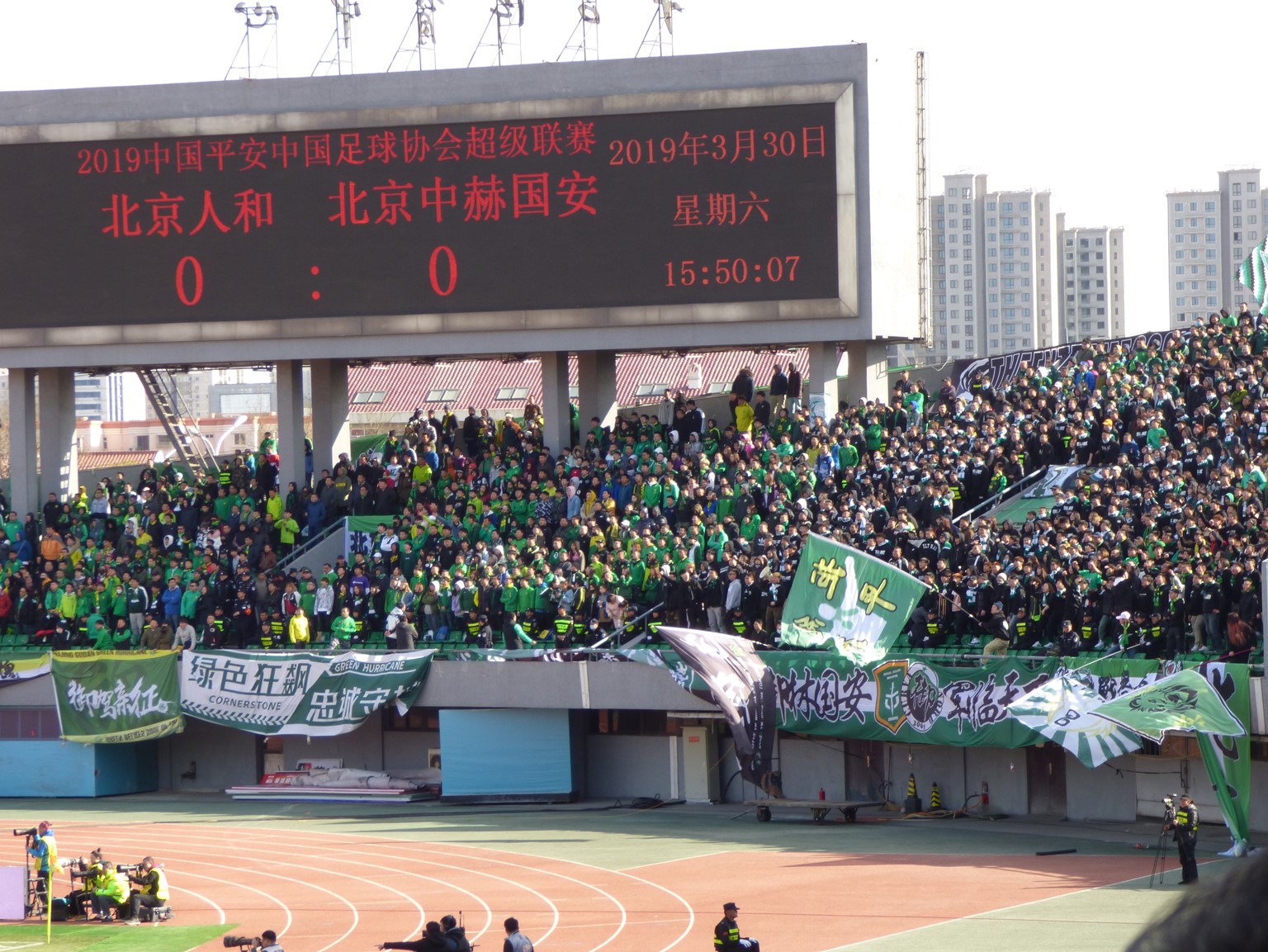
The home team played in 4-4-2 with the Senegalese player Makhete Diop leading the forward line. Sone Aluko (on loan from Reading) started as the other forward but for most of the time he dropped back and the youngster, Cao Yongjing played in a forward position. Their third foreigner was Argentine international Augusto Fernandez, signed last year from Atletico Madrid.
Having been more of a 4-3-3 against Urawa when I saw them in the Champions League, Guo’an were to play 4-4-2 in this game with no place for Bakambu, who had done so much to keep the previous game 0-0 (not much praise when we are talking of a forward). In his place, the captain, Yu Dubao switched from the centre of defence to partner Zhang Yuning up front. Zhang is best known for not playing for West Brom, but has had a good spell in Netherlands football. He still makes it into the team as an u-23 player this season as well.
Jonathan Viera and Renato Augusto were the wide players and the key to most of the visitor’s attacks, Viera easily being the most impressive player on view. Yennaris took up a defensive midfield position (last time I saw him play, he was at right back), while Kim min-jae reprised the role he had taken against Urawa in the back line.
Guo’an had won their first two games without conceding, Renhe had lost two, without scoring. I was therefore expecting 0-0.
Guo’an soon started to dominate proceedings, but could find few openings against a packed defence. Shortly before the break Viera made a foray into the area and was brought down as he turned, Yu Dabao was charged with taking the penalty and tamely played it to the home keeper. He made amends just after the hour mark with a powerful header from a Li Lei cross to put Guo’an ahead.
Renhe responded by immediately bringing Zhu Baojie into the fray. He replaced Cao, which basically changed the formation to 4-5-1. Zhu looked like a flair player, but very slight and easily knocked off the ball. I took him for a youngster who might have a future if he could gain some strength as he progressed. Then when I looked him up, I found out he was 29 years old.
in fact, Renhe started with two U-23 players in the team, meaning they only needed to play one more from the bench to make quota. This was their final substitution, and in the 77th minute. Guo’an had made only one change by this time, taking off the tiring Zhang Yuning (and therefore also going 4-5-1). As Yuning was the only U-23 player in the starting XI, (and rules state there must be at least one), then the substitute policy is very limiting. Instead of bringing on a player who might have threatened to increase the lead, they had to play two youngsters, who came on after 84 and 89 minutes. They therefore spent the end of the game defending a lead against a poor attacking force as they no longer had the players on the field to make their own attack
